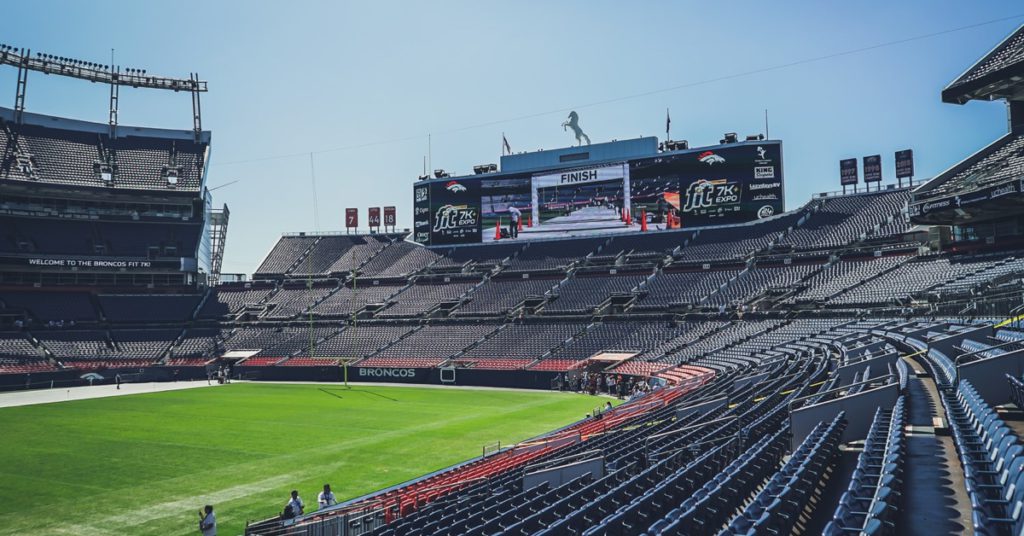It’s been months and we’ve finally let it sink in — nothing is ever going to be the same.
People have adapted to shelter-in-place with new routines: including washing hands much more often than before, and wearing masks (for those who managed to snatch some, for others — whatever cloth they can find) wherever we go. But have we really pictured what it’s going to look like for the rest of this year?

And that is on top of the possible hesitation among people to actually show up. In a survey of thousands of U.S. consumers, 59% said they will be concerned about crowds and their general proximity to strangers, and 44% said they would attend major events less often. That’s forcing venue operators to look at new ways of offsetting the revenue loss, which we will talk about later in this blog. Secondly, it’s likely that coronavirus will not be a one-off event. In fact, it could still come back in the fall. Historical data have shown that flu viruses tend to display “marked winter seasonality“, which means they survive better and spread faster in cooler, drier conditions than in the summer. There’s still debate over whether warmer temperatures can really kill coronavirus, or at least inhibit its ability to spread. However, even in the best case scenario where the virus does subside over the summer, there’s still a high chance that it will come back in October.
That means once sports and other events return in the fall, it’s not the beginning of a “happy ever after”. Rather, it means we need to be even more careful of the possible return of the virus. Due to the seasonality of the virus, we have to prepare for not just the rest of the year, but for the long run. Just like the flu season, it’s possible that coronavirus returns every year in spring or fall. All the preventive measures we are taking to counter the virus right now could be with us for a really long time to come.
This is what stadiums, entertainment venues and restaurants need to do to manage coronavirus.
Rather than taking a reactive approach and scrambling to stay afloat, let’s be proactive and control what we can — both right now and after the pandemic. 1. When your business can’t grow, grow your brand equity.
It’s tough to be flourishing during quarantine, unless maybe you are in certain space such as meal kits or live streaming. If you’re resourceful enough to adapt and stay open, for examples through mobile ordering and non-contact pickup, that’s just wonderful. If that’s not applicable to you, there are still things within your control to pave the way for long-term growth.
The Internet and social media opens up endless possibilities for businesses to grow their brand even when offline sales pauses. Start a 30-day challenge on social media; go live with cooking tutorials; repurpose your existing resources to support your community…All these are helping you establish a fan base that will benefit your business in the long run.
For example, although Dimo’s Pizza in Chicago had to shut down its pizza business, the owner started making masks using the pizza oven! Guess what’s going to happen when this pizzeria reopens — people will be flocking to the restaurant because of the following built during quarantine. 2. Avoid being defined as negligent.
Now let’s talk about what happens when events return. The pandemic has heightened everyone’s sense of social responsibility and awareness. We’ve seen stricter public scrutiny on what brands and companies are doing in the face of a pandemic. Be it delivery apps such as Grubhub and UberEats being sued over hidden fees, or NBA and WNBA selling face masks to benefit hunger, people are watching every move you make (both good and bad) especially during these sensitive times.
It’s a tightrope to walk on for sure, but the last thing you want is being called out for negligence. If a venue is not implementing proper measures such as providing hand sanitizers or separating spectators with empty seats — and if someone falls sick after attending the event — it’s more likely that the venue would be held accountable, regardless of whether they are indeed the reason for that person falling sick. Consider using technology to avoid risky contact. For example, ticket windows and concessionaires need to shift to contactless pay-only instead of paper money. A mobile ordering platform can achieve that. FanFood’s mobile ordering app can even help you display locations of hand sanitization stands to give your customers that extra reassurance and peace of mind. 3. Look for new revenue opportunities
With reduced capacity, you have to be creative in monetizing the crowd that does show up. We know this is a topic that’s near and dear to many business owners and venue managers’ hearts, so we are going to have a live stream with our CEO, Carson Goodale, and CEO of SQWAD, Nick Lawson on May 7th at 1pm central time. We will be covering ways to creatively generate new revenue streams such as:
- Digitization of sponsorship assets
- Cashless & contactless transactions
- Luxury suite and VIP guests
- Leverate strategic partnerships

